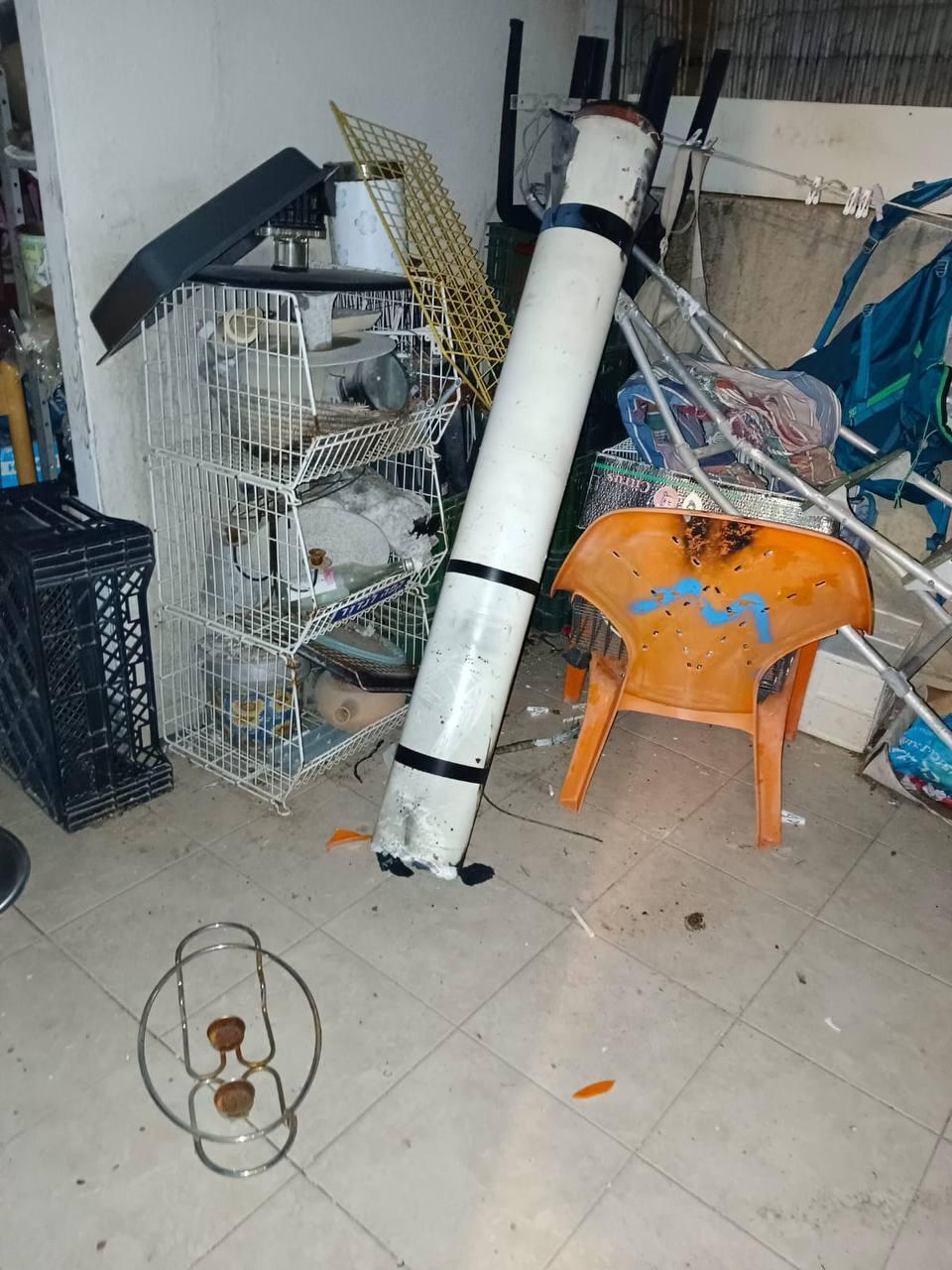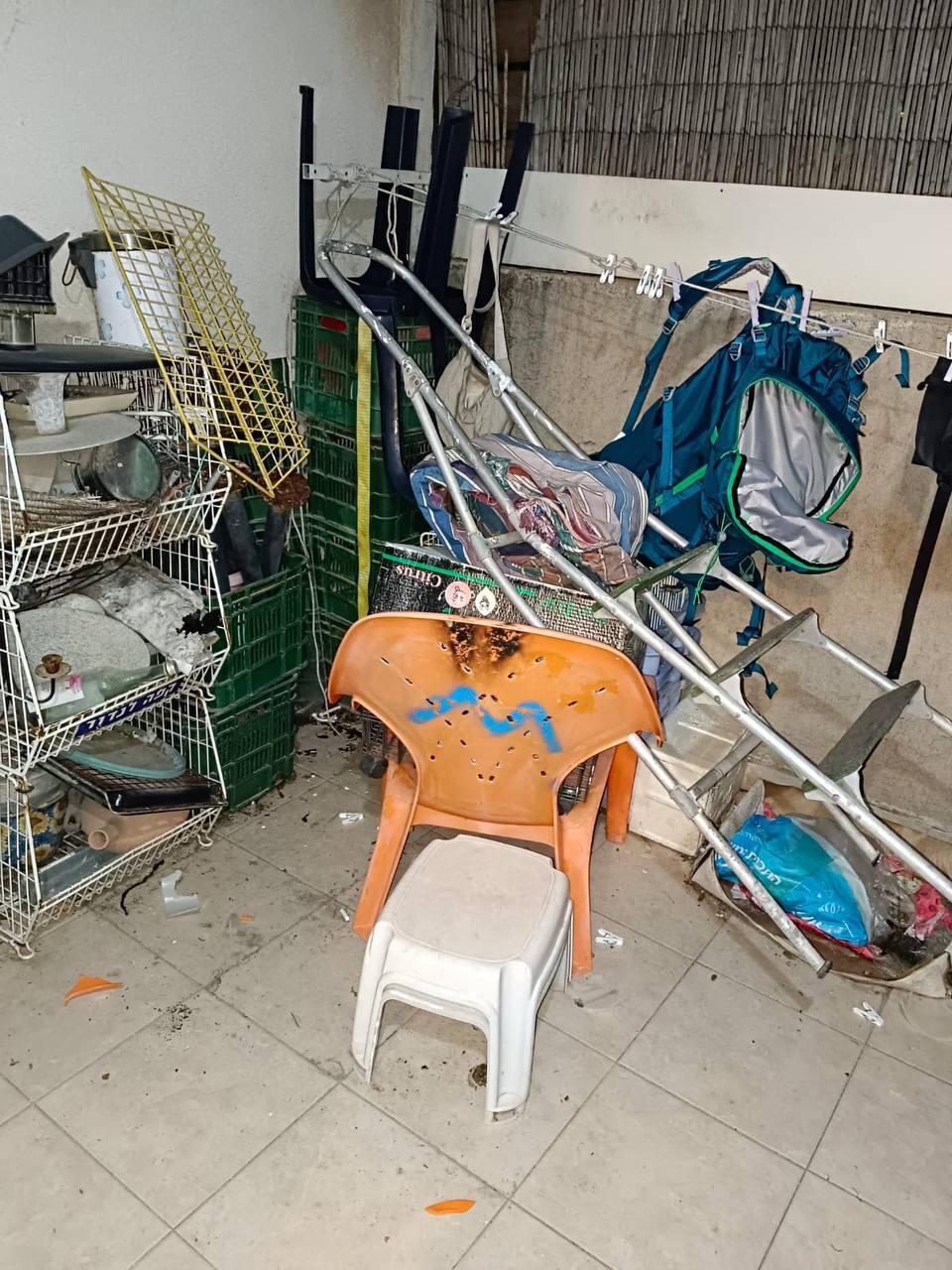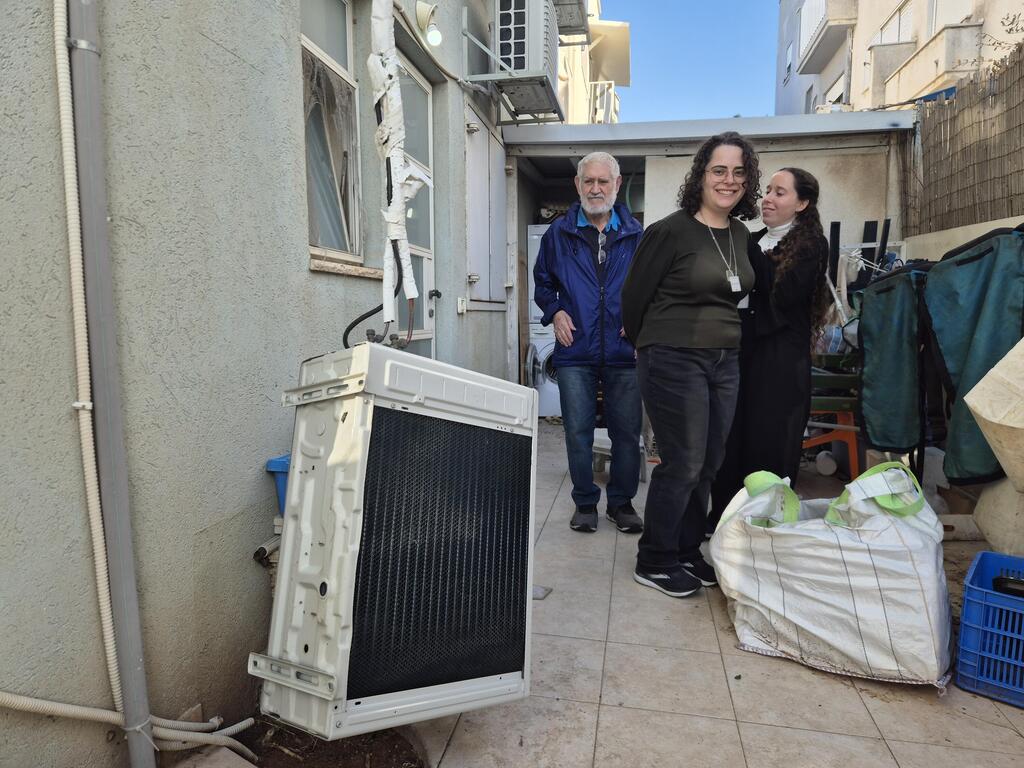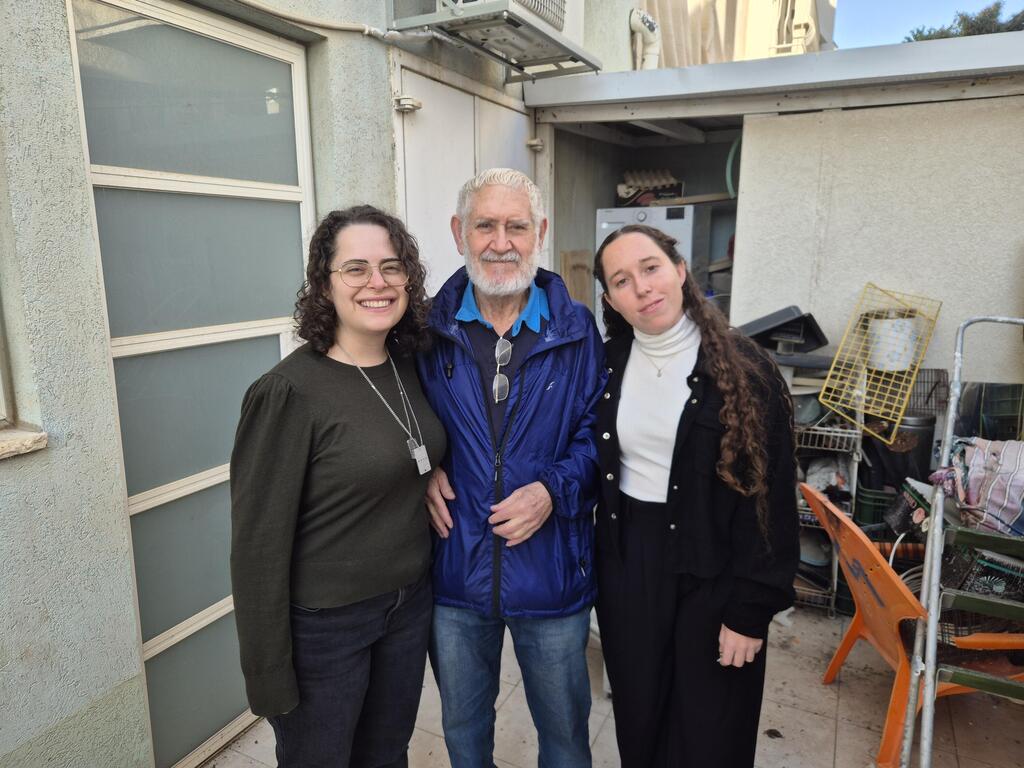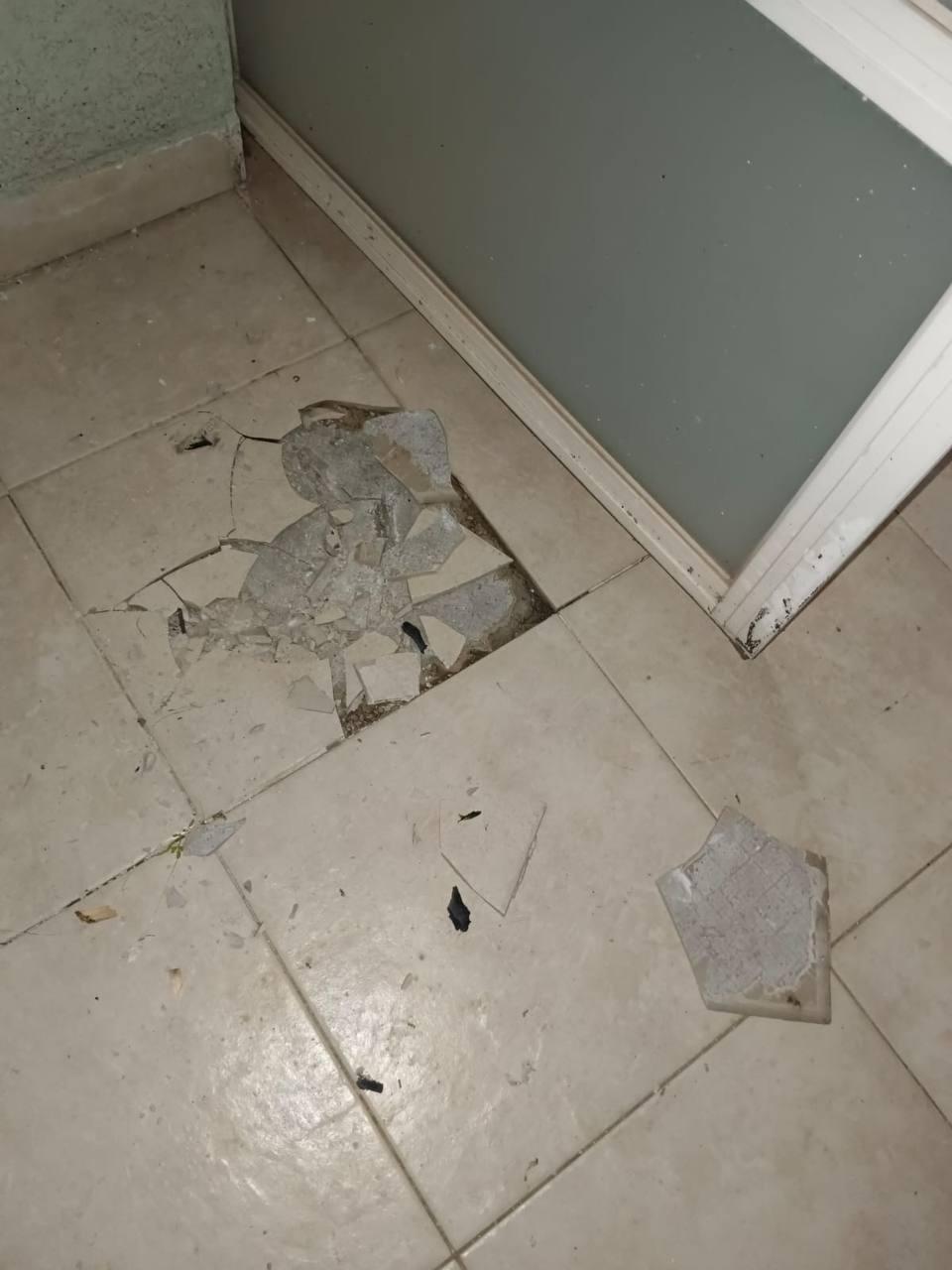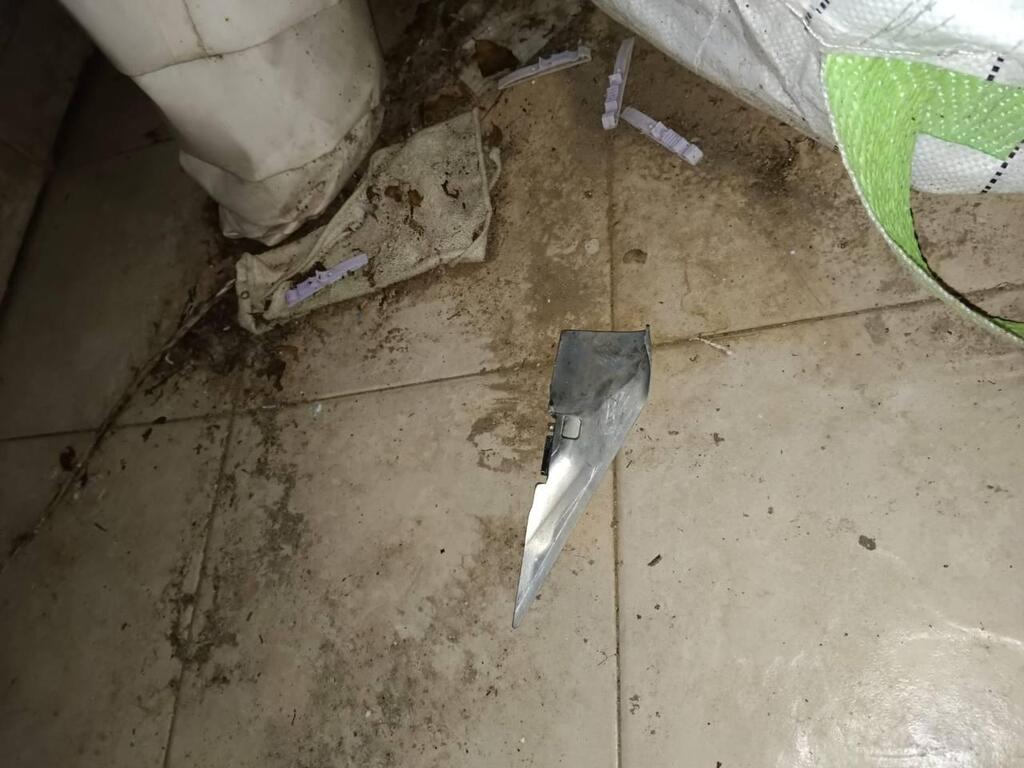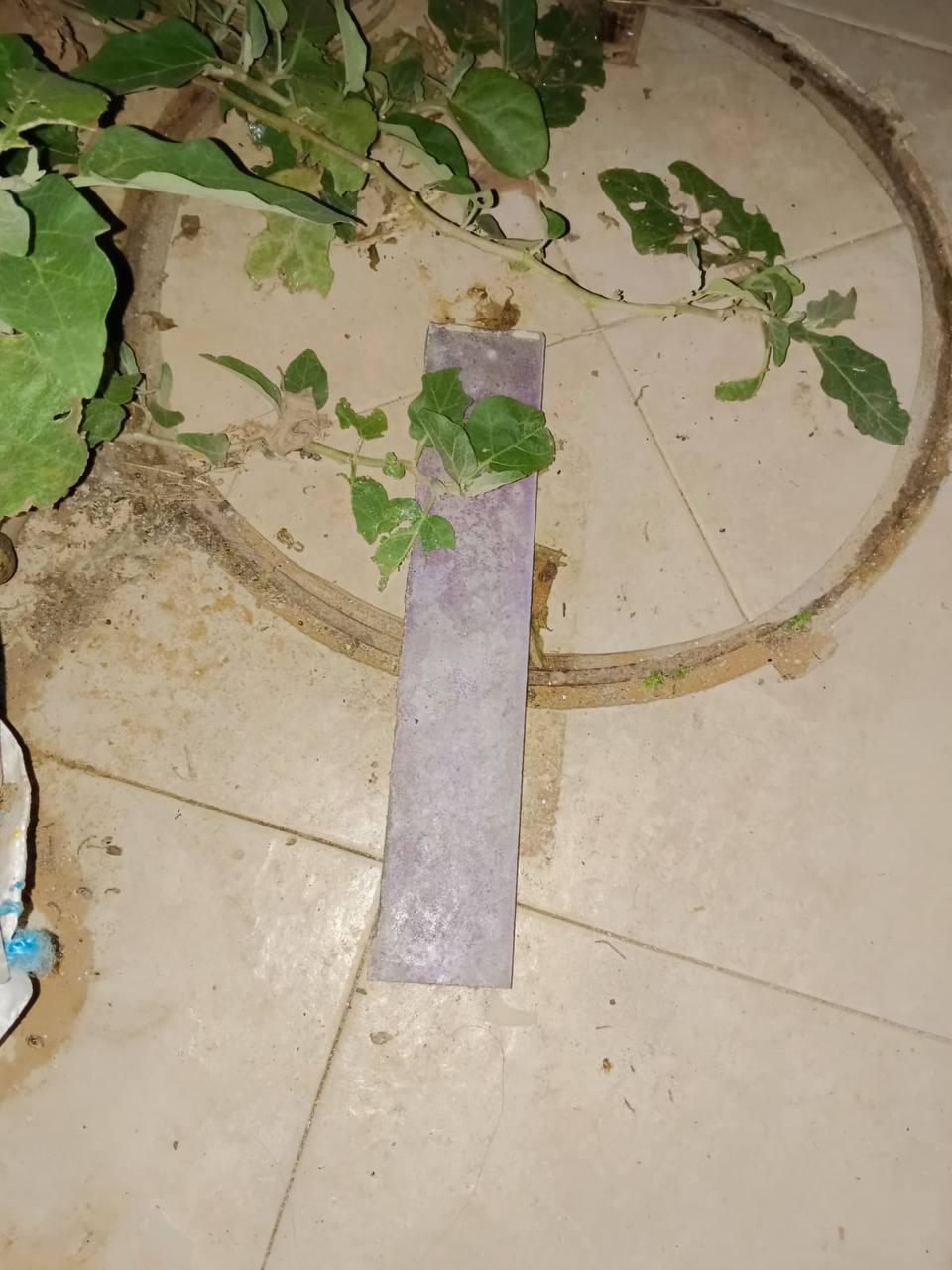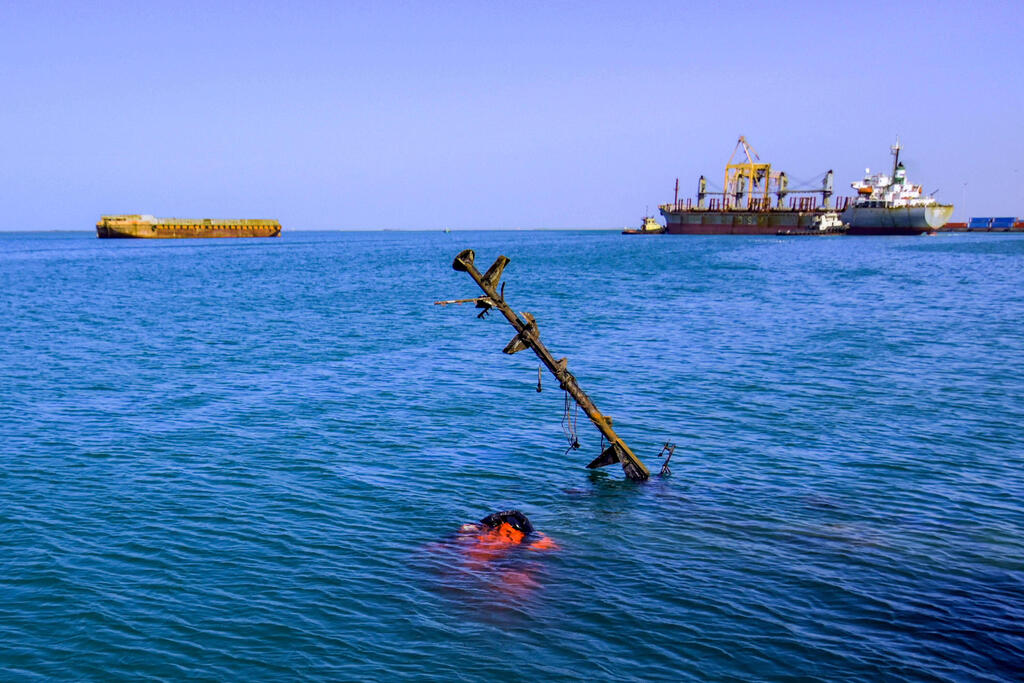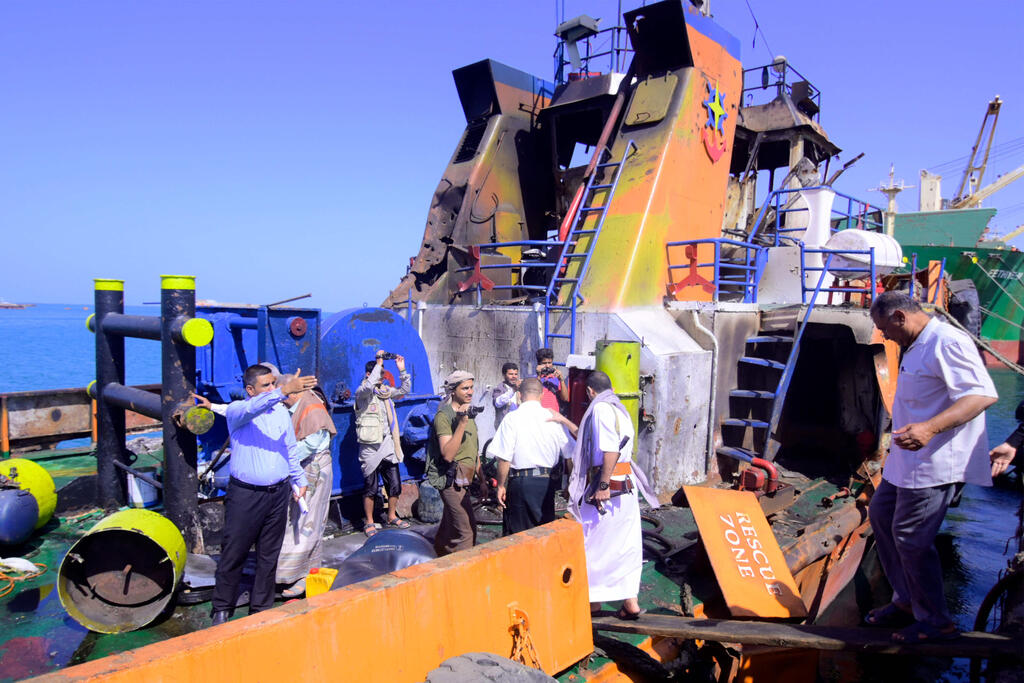Getting your Trinity Audio player ready...
In less than a week, half of Israel’s population has been jolted awake four times by alarms triggered by Houthi missile launches from Yemen, marking what appears to be a new campaign of attrition.
While Israel's missile defense systems have intercepted the rockets outside its territory, the fallout is disrupting daily life and causing property damage.
Early Wednesday, shrapnel from an interceptor damaged a home in Be’er Ya’akov. “We ran to the shelter when the alarm sounded. Minutes later, we heard a loud boom,” said Mor Steinberg, a resident. “A one-meter fragment landed on our balcony, damaging it and the air conditioner. It was hollow, but its size caused significant damage.”
Her grandfather, Moshe, who worked on Israel’s Arrow missile system, reflected on the irony: “I helped develop these systems, and now it feels like they’re chasing me,” he quipped.
Be’er Ya’akov Mayor Nissim Gozlan praised the family for adhering to safety guidelines. “Staying in the shelter for 10 minutes saved them from injury,” he said, urging residents to follow similar protocols.
The attacks have prompted Israel to push for an emergency UN Security Council session on Monday. Israeli Ambassador to the UN Danny Danon called for accountability, urging the Council to condemn the attacks and enforce international law.
Meanwhile, Houthi military spokesperson Yahya Saree claimed responsibility for the latest launch, boasting that their "Palestine-2 hypersonic missile" targeted a "military site in Jaffa."
The pre-dawn alarm at 4:22 a.m. disrupted residents in Tel Aviv, Herzliya, Rishon Lezion and several other cities. The missile was intercepted, but falling fragments caused several people to suffer shock and minor injuries. Magen David Adom reported nine injuries from falls while seeking shelter and two cases of shock.
Defense Minister Israel Katz visited an Arrow missile battery and vowed action: “We won’t tolerate continued Houthi attacks. Just as we dealt with Sinwar in Gaza, Haniyeh in Tehran and Nasrallah in Beirut, we will deal with Houthi leaders in Sanaa and across Yemen.”
Katz also warned Yemen’s Houthi backers: “Those sponsoring Houthi terror will pay the full price.”
The IDF concluded its investigation into a missile strike in Tel Aviv last week, citing a delayed alert due to unspecified reasons. Lessons have been learned, the military said, as Israel braces for further escalation.
Not stopping, for Gaza
The Houthis continue to pose a growing threat not only to Israel but also to the U.S. and international security.
Earlier this week, in one of the most dangerous incidents for U.S. forces in the Middle East since the Gaza war began, a U.S. Navy F/A-18 fighter jet was accidentally shot down over the Red Sea by an American warship. The Pentagon confirmed the two pilots ejected safely but declined to clarify whether the misidentification stemmed directly from ongoing clashes with the Houthis.
The incident underscores the challenges posed by Iran-backed Houthi forces, whose operations have escalated dramatically since the October 7 Hamas terror attacks on Israel.
Labeling their campaign as "support for Gaza," the Houthis have launched numerous missiles and drones not only at Israel, causing fatalities and damage, but also at civilian ships in the Red Sea, disrupting critical trade routes and even seizing vessels.
Get the Ynetnews app on your smartphone: Google Play: https://bit.ly/4eJ37pE | Apple App Store: https://bit.ly/3ZL7iNv
The Biden administration faces a dilemma. While seeking to end Yemen’s civil war and ease tensions between the Houthis and Saudi Arabia—where years of Saudi airstrikes have killed thousands of civilians—the U.S. has avoided large-scale attacks on Houthi forces. President Biden removed the Houthis from the U.S. terror list upon entering office, and a UN-brokered cease-fire between the Houthis and Saudi Arabia was reached in 2022.
Over the past year, the U.S. has launched targeted strikes to disrupt Houthi operations in the Red Sea but refrained from attacking strategic infrastructure, frustrating Israel. Despite these limited measures, the Houthis’ attacks persist, presenting a severe threat to regional stability.
Israel, which had avoided directly targeting the Houthis for months, conducted its first airstrike in July and has since struck twice more, including last week. These operations targeted strategic facilities, such as ports and energy infrastructure. Yet the Houthis have shown little sign of deterrence, continuing to fire missiles and drones.
Ynet military analyst Ron Ben-Yishai notes the Houthis are undeterred by economic and infrastructure damage, as evidenced by their prolonged war against Saudi Arabia from 2015 to 2019, during which tens of thousands of Yemeni civilians died from bombings and famine. He argues that only a decisive blow to Houthi leadership and weaponry—similar to Israel's strategy against Hezbollah—could shift their stance.
Prime Minister Benjamin Netanyahu urged Israelis to remain patient, emphasizing that Israel is not confronting the Houthis alone—a possible nod to hopes that the U.S. and its allies will intensify their strikes. Netanyahu vowed continued action: "We will act with strength, determination and ingenuity. Even if it takes time, the result will be the same as with other terror groups," he said Sunday, promising Monday that the strike in Yemen would not be the last.



